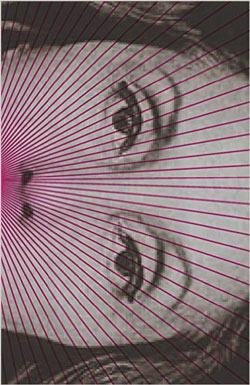The Complete Stories
by Clarice Lispector, translated by Katrina Dodson
reviewed by Gabriel García Ochoa
In a letter written to her friends Ilse and Kit Barker in 1962, the American poet Elizabeth Bishop talks about the only contemporary Brazilian writer she likes, one Clarice Lispector, whose short stories, she assures them, are better than Jorge Luis Borges’s. The famous translator Gregory Rabassa compared Lispector’s writing to Virginia Woolf’s; more recently, Benjamin Moser, the author of Lispector’s biography and the editor of this book, referred to her as “the most important Jewish writer since Kafka.” No wonder Lispector’s style is difficult to pin down. Borges, Woolf, and Kafka; add Joyce, and we’ve got the four pillars of twentieth-century literature, all in one author. What mad, bewitching writing could these comparisons be referring to?
Lispector’s Complete Stories is an avalanche of genius. Of the eighty-four texts translated by Katrina Dodson, it is impossible to find one where Lispector’s prose does not leave her readers stunned. Lispector died in Brazil in 1977, an admired intellectual in the lusophone world but not the preeminent Brazilian writer of her time she is now considered to be. She was born in Chechelnik, a small shtetl in the Ukraine. In the early 1920s, when Lispector was just a year old, her family sought asylum in Maceió, Brazil, seeking to escape the pogroms then ravaging eastern Europe.
This is the first time that Lispector’s stories have been collected into a single volume in any language. One of the advantages of this is that we are able to appreciate the development of Lispector’s style over time. The stories range in length from scarcely more than a page to a short novella. The earliest was published when Lispector was only nineteen; the last are incomplete sketches published posthumously.
In the famous prologue to his work The Kingdom of this World, the Cuban author Alejo Carpentier observes that good writing demands risking one’s soul. I can’t think of a better way of describing what Lispector does in her short stories. That element of risk is always present, the constant challenge of language and subject matter. Many of her most beautiful sentences, at first glance apparently senseless or non sequiturs, glimmer like hidden truths upon closer inspection. Take, for example, the following: “Her compassion for the blind man was as violent as an agony,” or “I won’t go to the beach because I’m too fat and that’s unfortunate for someone who so appreciates the little green waves of the Sea!” When reading Lispector’s stories, I am often stopped cold by the strange composition and secret meaning of sentences like these, forcing one to reflect that perhaps there are instances of compassion that are experienced violently, or that our perceptions tend to be associative and rarely logical.
One of the primary uses of narrative is to extricate order out of chaos, to draw meaning from the world that surrounds us. Lispector’s language does the opposite: it transcends the framework of her narratives to explore the imminent, terrifying chaos that constitutes life. A common plot thread through Lispector’s stories is the existential epiphany, a moment of metaphysical truth and terror when the walls of her characters’ lives collapse, leaving them standing in the cold. There are undercurrents to the world that pull her protagonists, inexplicably and unexpectedly, toward reflection. It may be the sight of an abandoned house, a buffalo, or a blind man; accidentally stepping on a rat or considering the dimensions of an alarm clock may prompt these spiritual musings. In these examples, the relationship between the thing itself and what it represents for a character changes dramatically. The signs of the world lose their meaning or open up, like gaping sinkholes, to new and unfathomed levels of significance.
As a result of her pushing language to its limits, Lispector’s prose often feels foreign, which has nothing to do with Dodson’s praiseworthy translation. In fact, Dodson manages to translate the untranslatable. One of Lispector’s most moving stories, “A Hope,” hinges entirely on a pun in Portuguese that does not exist in English, the word esperança, which means both “cricket” and “hope.” Despite inherent linguistic impossibilities like these, Dodson negotiates her translation intelligently and with subtlety, allowing her readers to understand and appreciate the emotional power of the original text.
Thanks to Benjamin Moser’s efforts, Lispector is gaining the fame that she deserves in English. In addition to publishing her biography, Why This World, Moser also translated Lispector’s last novel, The Hour of the Star, and edited the translations of her other four novels: Near to the Wild Heart, A Breath of Life, Água Viva, and The Passion According to G.H., each of which had a different translator. According to Moser, there are also plans to translate her remaining texts, for which the reader can be thankful.
Published on December 14, 2015

